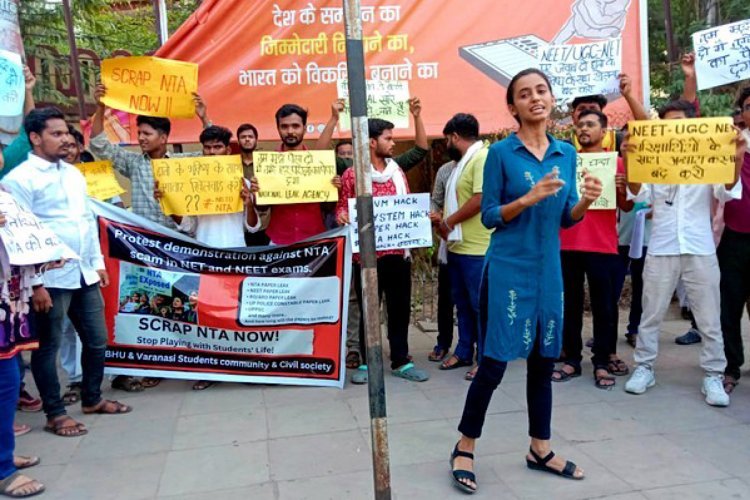Amidst the NEET and UGC-NET controversy, an anti-paper leak law is implemented.
In an effort to stop cheating on several national tests, the central government passed the Public Examinations (Prevention of Unfair Means) Act, 2024, which calls for harsh penalties.

Paper leak prevention is the goal of the Public Examinations Prevention of Unfair Means Act.
suggests a punishment of Rs. 1 crore and a maximum term of 10 years in prison.
A government notification about the NEET and NET test controversy
The Public Examinations (Prevention of Unfair Means) Act, 2024, which attempts to stop unfair means in public examinations and common entrance tests performed across the nation, was notified by the central government on Friday. The action was taken in the midst of a heated dispute around purported malpractices in the administration of the NEET and UGC NET exams.
The bill, which was approved by the Parliament in February of this year, suggests that cheating be punished with a minimum of three to five years in prison. Those who engage in organized cheating activities could face a sentence of five to ten years in prison of imprisonment and a minimum fine of Rs 1 crore.
According to the law, anyone or any group of people who commit an organized crime, including the examination body, a service provider, or any other institution, will be punished with a minimum sentence of five years in prison, with the possibility of an extension to ten years, and a maximum fine of one crore rupees.
In addition, if an institution is discovered to be complicit in an organized paper leak crime, the law provides for the attachment and forfeiture of its property, as well as the recovery of the examination's reasonable costs.
On the other hand, the act shields test takers from the harsh provisions, and they will be subject to the current examination conducting organization's unfair means policy.
"Unfair means" is defined by law as following: leaking question papers or answer keys; providing solutions or facilitating unauthorised communication to candidates during exams; interfering with computer networks or resources; pretending to be a candidate; holding phony examinations or issuing phony documents; and tampering with documents related to merit lists or ranks.
The crimes covered by the statute are not subject to bail. Under the Act, any official with the level of Assistant Commissioner of Police or Deputy Superintendent of Police is qualified to look into any offense. Furthermore, any probe may be referred to a central agency by the central government.
Exams administered by the National Testing Agency (NTA), the Union Public Service Commission (UPSC), the Staff Selection Commission, the Railways, banking recruitment exams, and other computer-based exams are covered by the Act.
What's Your Reaction?





















